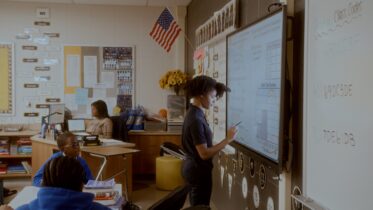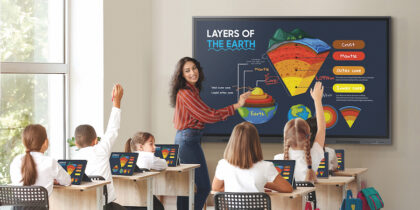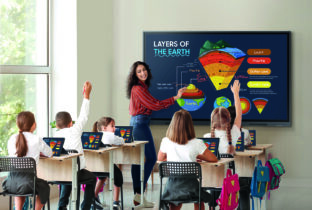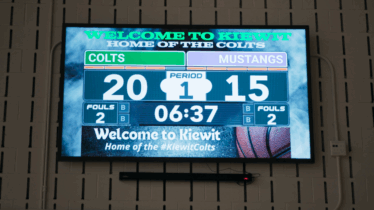Former Harvard University president Derek Bok once said, “If you think education is expensive, try ignorance.” Planning special projects like field trips or integrating new technology like tablets in education is not cheap, but they are investments in our future. A large majority of teachers who have experimented with the flipped classroom model endorse it, and field trips are necessary supplements to what teachers can offer in the classroom.
Use Tablets to Explore the World Around Your School
One of the most attractive features of tablets in education is that they can make learning fun. A technology-enhanced scavenger hunt allows teachers to broaden the type of items they can ask students to find. And, it allows them to do so with limited effect on the environment. The general format is similar to standard scavenger hunts, but instead of picking up objects and bringing them back to class, students can use their tablets to snap a photo. Teachers can also ask their students to write a description of each item or the environment where the items are found to further enhance the activity.
How Field Trips Enrich Students
In a 2013 study conducted at the University of Arkansas, researchers found that culturally stimulating field trips, which are becoming less common due to shrinking budgets, actually improve critical life skills in children. Researchers surveyed more than 10,000 students during visits to a local art museum in order to measure life competencies such as historical empathy, critical thinking and tolerance. The data they gathered showed that students who visited the museum demonstrated increased long-term interest, better critical thinking and higher tolerance levels, pointing to the fact that field trips should be a priority in budget consideration.
Technology Can Augment the Value of a Field Trip
Humboldt County Office of Education in Northern California recently collaborated with Sequoia Park Zoo to realize a very special educational program using Samsung School. They wanted to empower students to explore independently and really connect with the animals in the nature reserve surrounding the zoo. In order to do this, they needed to bring the classroom into the great outdoors. “We wanted learners to be able to take pictures, collect samples and create presentations to share with other students,” Amber Neilson, education and operations supervisor at Sequoia Park Zoo, says of the initiative. “We needed mobile technology that would allow children to be untethered from wires and desks, and take the technology outside to learn about the environment around us.”
Using Samsung Galaxy tablets, students are able to snap photos of the natural environment and take notes as they move around the zoo, conducting research up close. Returning to the learning lab, their teachers are able to use the Samsung School platform to share the students’ findings with the entire class, screen-sharing from the tablets to the large Samsung classroom displays. In addition, the Samsung School classroom management technology supports screen monitoring, giving teachers oversight into how their students are using the technology.
The Sequoia Park Zoo has created an engaging, one-of-a-kind experience for students. The response from teachers, parents, students and the larger community has been overwhelmingly positive. Sequioa Park Zoo manager, Gretchen Ziegler says, “With the Samsung tablets, we can take students out to the Redwood Forest behind the zoo to collect data and beam it back to the learning center. They can build reports about the size of trees they see on their walks or record details from the streams. There’s so much bio diversity around us, and with the Samsung technology, the sky is the limit with what we can do.”
![Go Beyond the Classroom: The Benefits of Tablets in Education [CASE STUDY]](https://s47295.pcdn.co/wp-content/uploads/2015/05/hi-res-sequoia-zoo-58-of-302-.jpg)






